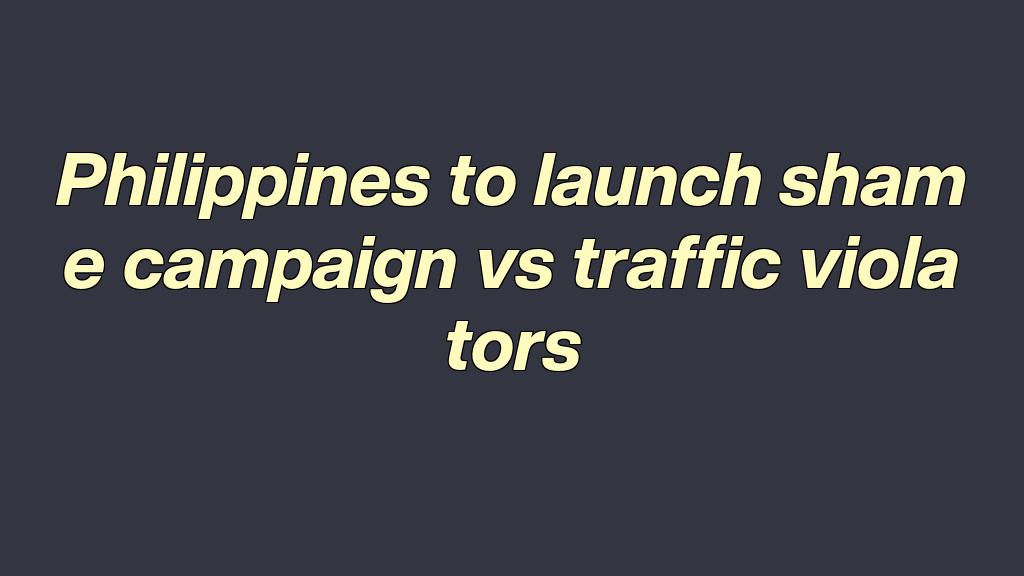TRANSPORTATION Secretary Vince Dizon on Wednesday said the government would push through with a planned “shame campaign” targeting motorists who blatantly violate traffic rules, underscoring the state’s duty to ensure road safety.
Dizon said the initiative aims to discipline hardheaded drivers whose reckless actions endanger the public despite repeated enforcement efforts.
“The government is simply asking everyone to follow the rules and regulations on the road. Let’s not be hardheaded,” Dizon said.
The shame campaign would be reserved for “grave violators” whose actions put lives at risk, and not minor infractions.
The Department of Transportation (DOTr) has tasked its legal team to study the measure’s boundaries before the nationwide rollout.
The proposed initiative includes a weekly “Huwag Tularan” (Do Not Emulate) list, naming motorists caught repeatedly endangering themselves and others on the road.
Dizon said the move is meant to send a strong signal that reckless drivers “should not be emulated.”
This campaign comes amid an unprecedented enforcement drive by the Land Transportation Office (LTO).
In the past six months alone, the agency issued 2,008 show-cause orders and revoked 420 driver’s licenses — a record-high number in its history, according to LTO Assistant Secretary Vigor Mendoza II.
Earlier “name-and-shame” efforts by local governments and traffic units, which published photos or CCTV videos of violators, drew mixed reactions from motorists’ groups, citing concerns over due process and privacy.

Dizon said the DOTr is mindful of these issues, which is why the program is under legal review.
Philippines to launch shame campaign vs traffic violators, This news data comes from:http://nfe-ank-oys-mgw.yamato-syokunin.com
“We need to teach a lesson to those who are really hardheaded on the road,” he said.
Road safety advocates have long called for stricter enforcement amid rising incidents of reckless driving, drunk driving, and road rage.
Government data show that traffic-related accidents remain one of the leading causes of injury and death in the country, particularly in highly urbanized areas.
- Marcos to attend UN meet in New York in Sept- Palace
- House panel defers 2026 DPWH budget until agency submit changes
- More funding sought for sports commission
- Madagascar welcomes home skulls of Indigenous warriors taken by French colonial troops 128 years ago
- Marcos signs mining tax regime law
- Marcos 'ready' to undergo lifestyle check- Palace
- Marcos wants subpoena power for body investigating flood projects
- Israeli protesters call for hostage deal ahead of cabinet meeting
- PH, Japan conduct search and rescue exercises
- Thailand acting PM moves to dissolve parliament — party